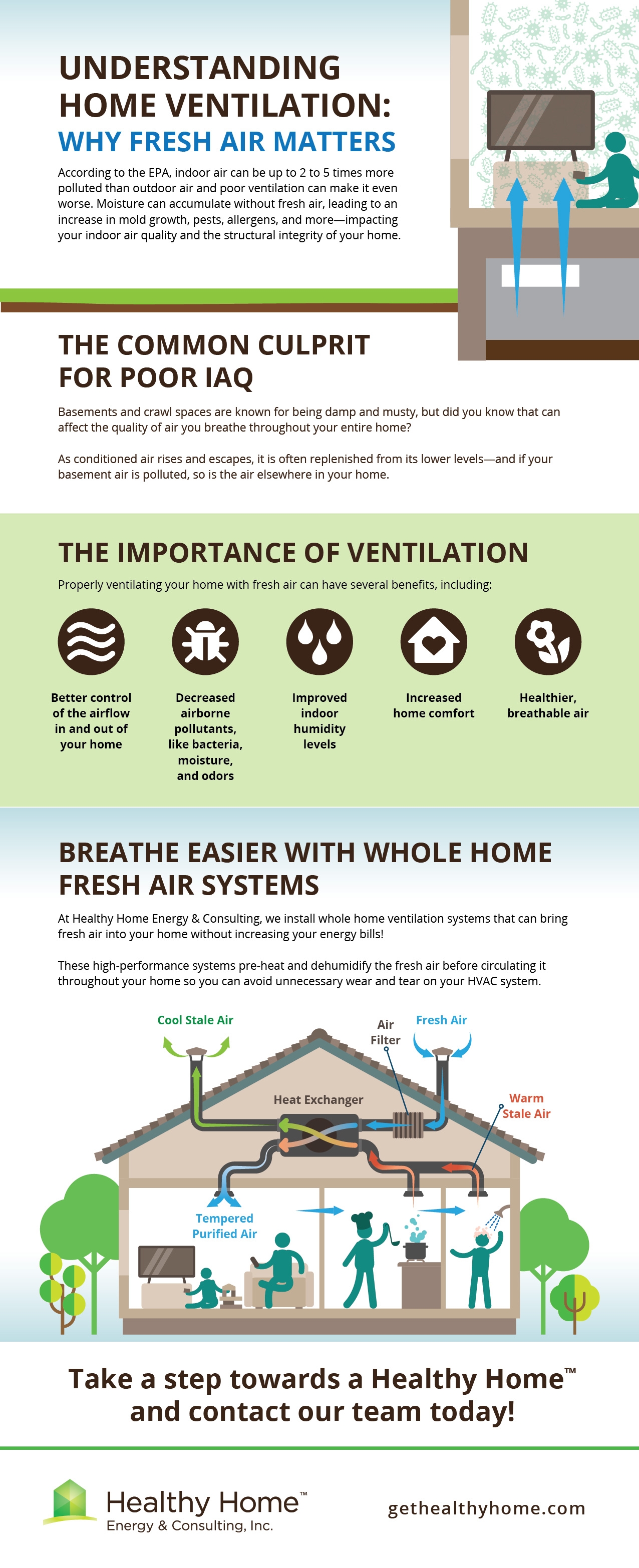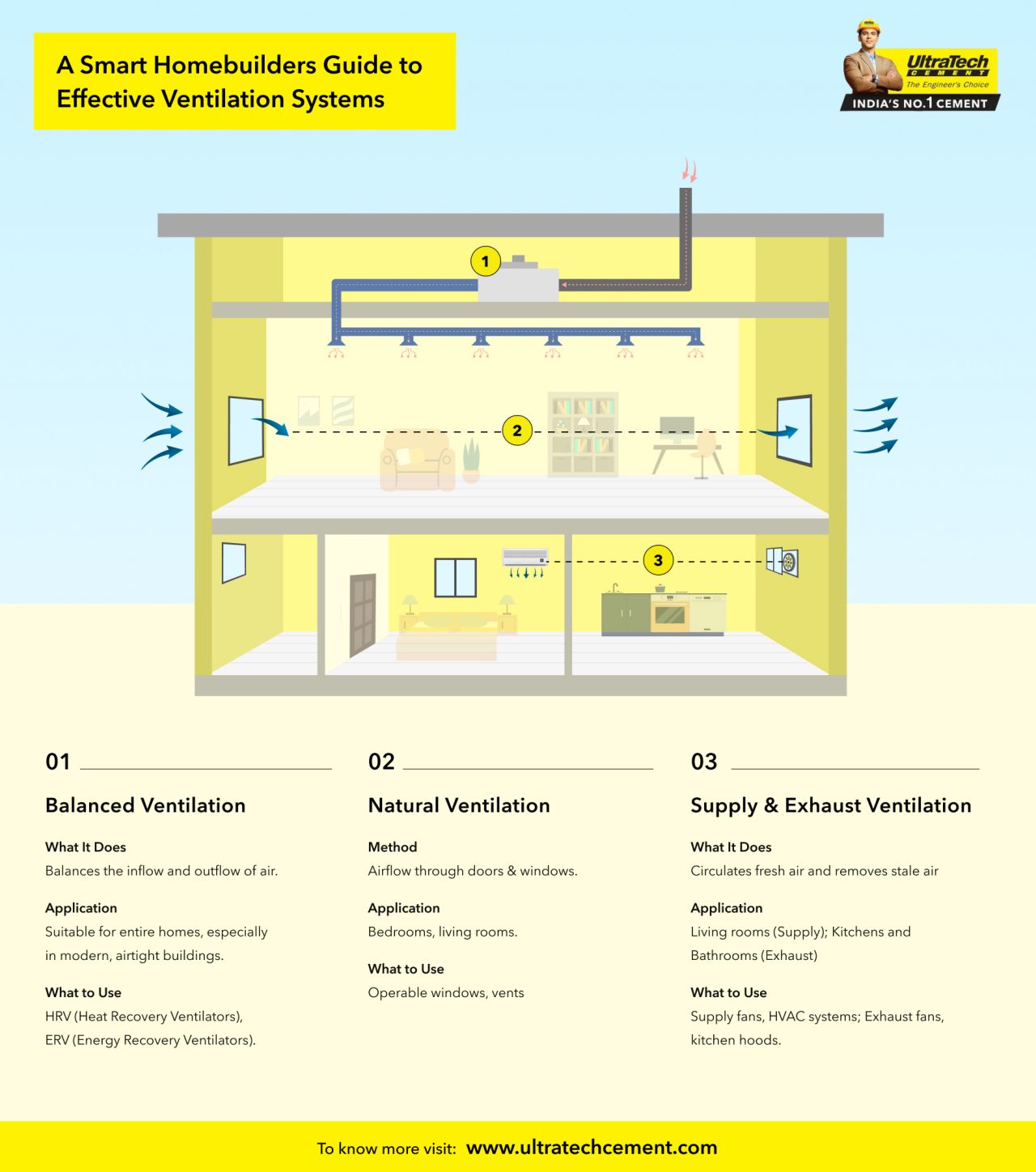The Duty of Home Air Flow in Stopping Mold and Indoor Allergens
Home ventilation is a critical part in preserving a healthy and balanced interior atmosphere. It manages moisture degrees, which can stop the growth of mold and the build-up of allergens. Several house owners neglect the importance of appropriate air flow, commonly bring about undetected concerns. Comprehending how air flow systems feature and their effect on air high quality might be the secret to a healthier space. What steps can be taken to boost these systems effectively?
Comprehending Home Air Flow Solutions
While numerous property owners might overlook the significance of air flow, recognizing home ventilation systems is crucial for keeping indoor air top quality and protecting against mold growth - Home Ventilation Melbourne. These systems help with the exchange of stagnant interior air with fresh outdoor air, effectively decreasing pollutants and moisture levels. Common kinds include all-natural air flow, which depends on wind and temperature differences, and mechanical air flow, which utilizes ducts and followers to control air flow. In addition, balanced air flow systems integrate both techniques to enhance air quality. Effectively designed and maintained ventilation systems can help control temperature level and moisture, making certain a comfortable living atmosphere. House owners must consider variables like home layout, occupancy, and climate when selecting an air flow system to ideal match their requirements and boost total air quality
The Effect of Moisture on Mold Development
Humidity plays an important function in mold development, making it an essential element for house owners to check. Mold and mildew grows in environments where humidity degrees go beyond 60%, as these problems offer the dampness essential for spores to proliferate and sprout. High humidity can result from various resources, consisting of poor ventilation, water leakages, and food preparation or bathing tasks. When humidity degrees remain raised, mold and mildew can establish swiftly on organic products such as wood, material, and drywall. Property owners need to use dehumidifiers and ensure appropriate ventilation in areas susceptible to moisture, such as washrooms and cellars. Preserving interior humidity in between 30% and 50% can considerably reduce the risk of mold development, adding to a healthier living setting.
Identifying Usual Indoor Allergens
Indoor atmospheres can nurture a selection of irritants that impact health and wellness and comfort. Typical indoor allergens consist of dirt termites, pet dog dander, mold spores, and pollen. Dust mites thrive in bed linen, carpets, and furniture, eating organic material and adding to respiratory system problems. Pet dander, made up of small flakes from skin and hair, can cause allergic reactions in sensitive people. Mold spores, typically existing in moist areas, can proliferate and affect air top quality. Furthermore, plant pollen can penetrate homes through open home windows or on garments. Recognizing these allergens is crucial for keeping a healthy indoor setting. Understanding of their presence allows home owners to take aggressive measures to reduce exposure and boost general interior Home Ventilation Melbourne air top quality.
Benefits of Correct Ventilation
Proper air flow is necessary for preserving a healthy and balanced indoor atmosphere, as it aids to manage air top quality and decrease the build-up of toxins. Appropriate air flow assists in the exchange of interior and outdoor air, consequently watering down hazardous substances such as volatile natural substances, irritants, and dirt. This process not just improves convenience yet additionally adds to the overall health of passengers by reducing respiratory issues (Home Ventilation Melbourne). Correct air flow successfully controls moisture levels, lowering the possibility of mold and mildew growth and cultivating a drier atmosphere favorable to wellness. Additionally, it can enhance energy performance by making sure that heating and air conditioning systems operate extra successfully, leading to reduced power expenses. Generally, appropriate air flow is an important component in advertising a healthy and balanced and safe home

Tips for Improving Home Ventilation
Although lots of homeowners may forget it, improving home air flow is necessary for enhancing air high quality and preventing mold development. One reliable approach is to consistently open windows to promote cross-ventilation, enabling fresh air to distribute. Mounting exhaust fans in kitchens and restrooms can successfully eliminate moisture-laden air, minimizing humidity degrees. House owners ought to additionally think about utilizing air cleansers with HEPA filters to capture toxins and irritants. Regularly maintaining HVAC systems, including altering filters, assurances come to a head airflow and efficiency. Securing leaks around doors and windows can stop outdoors air from going into, which assists maintain a regular indoor atmosphere. Including houseplants can normally boost air high quality while adding visual value to the home.
Regularly Asked Concerns
Exactly how Usually Should I Tidy My Home Ventilation System?
Determining exactly how usually to clean a home air flow system depends upon numerous aspects, consisting of use and ecological conditions. Home Ventilation Melbourne. Usually, specialists recommend a thorough cleansing every three to five years to preserve ideal air flow and effectiveness
Can Plant Kingdom Help In Reducing Indoor Allergens?
Research study indicates that certain interior plants might help in reducing irritants by enhancing air top quality and raising humidity. Nevertheless, their performance varies, and maintaining a tidy environment continues to be essential for managing interior allergens successfully.
What Types of Air Filters Are Ideal for Mold Avoidance?

Are There Specific Air Flow Demands for Basements?

Just how Do I Know if My Air Flow Is Functioning Efficiently?
To identify effective ventilation, one need to keep an eye on moisture degrees, examine air flow with vents, and observe indications of condensation or stationary air. Routine assessments can indicate whether the system effectively distributes and exchanges interior air.
Recognizing how air flow systems function and their effect on air high quality can be the trick to a healthier living room. While several house owners may forget the significance of air flow, comprehending home ventilation systems is necessary for preserving interior air top quality and avoiding mold and mildew growth. Usual types consist of all-natural air flow, which relies on wind and temperature level distinctions, and mechanical ventilation, which utilizes ducts and fans to control air movement. Correct ventilation is essential for maintaining a healthy and balanced indoor environment, as it aids to manage air quality and decrease the accumulation of pollutants. Numerous homeowners might ignore it, boosting home ventilation is essential for enhancing air quality and avoiding mold growth.